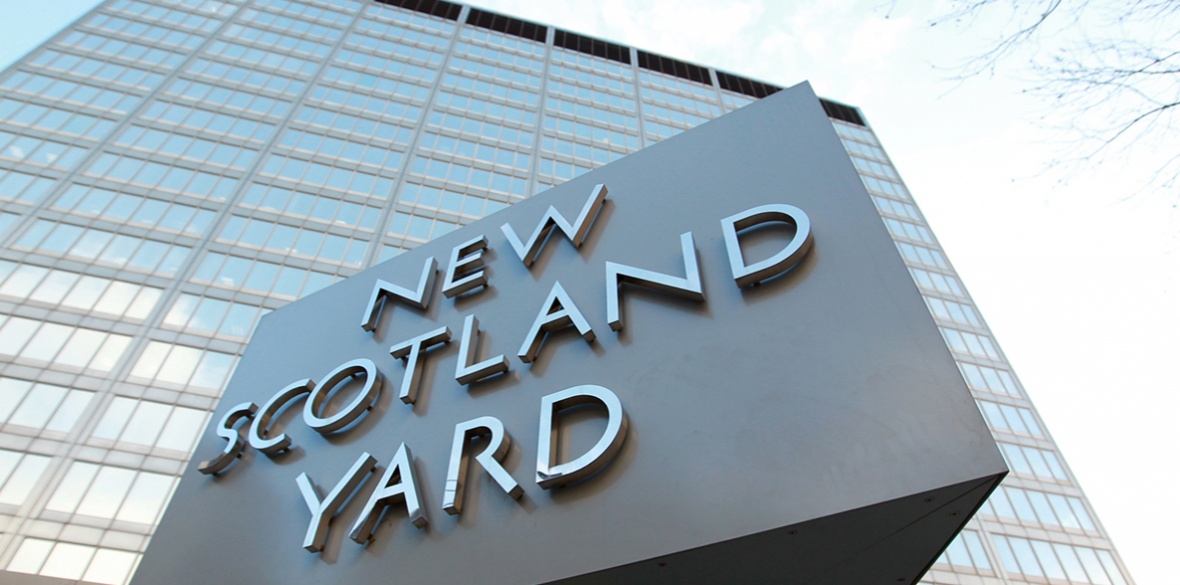This is the last article you can read this month
You can read more article this month
You can read more articles this month
Sorry your limit is up for this month
Reset on:
Please help support the Morning Star by subscribing here
A SECRET police unit that spied on over a 1,000 left-wing groups over 40 years should have been disbanded shortly after it was created, a public inquiry said today.
Inquiry chairman Sir John Mitting, a retired judge, said in an interim report that the tactics used by police spies to infiltrate protest groups in the 1970s and ’80s were not justified.
He found that out of the hundreds of groups targeted by officers in the Special Demonstration Squad between 1968 and 1982 he would only have considered three a “legitimate target.”
While Sir John said that long-term deployments into left-wing groups did “make a real contribution” to assisting the goals of the unit, he concluded that the ends did not justify the means.
He said: “I have come to the firm conclusion that, for a unit of a police force, it did not; and that had the use of these means been publicly known at the time, the SDS would have been brought to a rapid end.”
Sir John concluded that there was a “remarkable” number of people and groups targeted who posed little or no public order threat and instead, “extensive” details of individuals’ personal lives were recorded.
Of the 2,600 police reports retrieved during 1975 and 1978, almost half concerned the identity and lives of individuals, whereas just 200 contained details of events that posed a potential public order risk.
Speaking to reporters in London, campaigners affected by police spying said the findings were “devastating for the police, security services and government” and vindicate their years-long battle for answers.
“It’s been a long and hard journey for many for us, campaigning to expose the truth which is finally beginning to get the recognition it deserves,” campaigner Dave Morris said.
Dave Smith of the Blacklist Support Group (BSG) said the report must be the “final nail in the coffin for the Metropolitan Police.”
“It’s never about one bad apple,” he said.
“The entire place is rotten to the core and what this demonstrates is that for 50 years there was a police unit that spied on people who were participating in normal, perfectly legal, democratic political campaigning.”
Campaigners said the report was largely positive but expressed disappointment about “gaps,” saying issues around the spying on black family justice campaigns, the sexual abuse of women targeted and the involvement of MI5 were omitted.
Reading out a statement by Police Spies Out of Lives, BSG, Campaign Opposing Police Surveillance, Undercover Research Group and The Monitoring Group, Mr Morris continued: “Today’s report is just the beginning.
“As the inquiry progresses, victims expect more shocking revelations and we call for the issues not dealt with in the interim report to be properly addressed.”
Campaigner Kate Wilson welcomed the report’s finding that deceitful relationships began in the 1970s and that these “became a perennial feature in the SDS throughout the rest of its history.”
“These operations were unlawful in 1970s and they were still unlawful in 2003,” Ms Wilson, who was deceived into a relationship with undercover officer Mark Kennedy in the 2000s, said.
She also called on the inquiry to go further, saying: “This is about the Met Police, the Home Office and MI5 perpetuating human rights abuses and waging war on their own citizens for more than four decades.
“And what the inquiry now has to look at is, how did that go on for so long? How did it survive the end of the cold war?
“How did it survive the introduction of the Human Rights Act?”
The report is the first to be published by the long-running inquiry, which is examining industrial-scale police spying of protest groups over more than 40 years.
Over 1,000 groups were targeted, including campaigns fighting against racism, war and apartheid.
The report, which covers the first 14 years of SDS operations from 1968 to 1982, comes eight years after the public inquiry was launched in 2015 by then home secretary Theresa May following a series of disturbing revelations of undercover police abuse.
These included spying on the family of murdered teenager Stephen Lawrence, and the deception of women into sexual relationships. At least four officers are known to have fathered children with activists while undercover.
The inquiry is expected to resume hearings next Spring.









